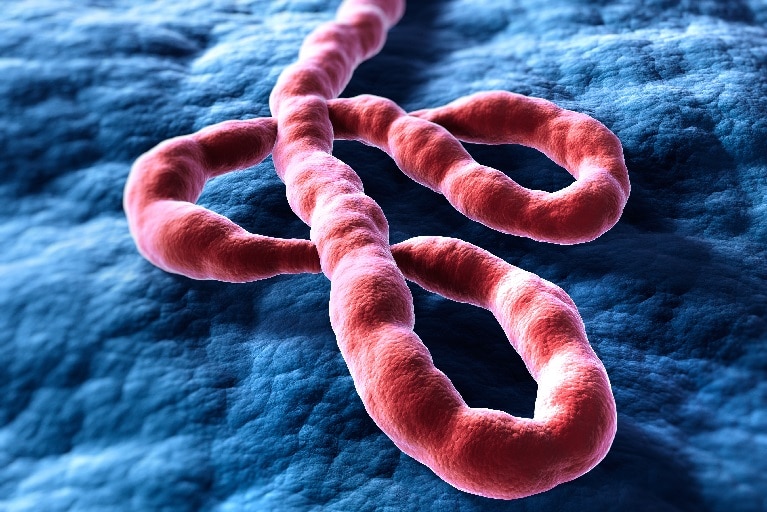Key points about Ebola include:
1. Transmission:
- Ebola is transmitted to humans from wild animals, such as fruit bats, or through direct contact with the blood, secretions, organs, or other bodily fluids of infected people or animals.
- Human-to-human transmission occurs through close contact with the blood, secretions, organs, or other bodily fluids of infected people, and surfaces and materials contaminated with these fluids.
2. Symptoms:
- EVD has an incubation period of 2 to 21 days after infection. Symptoms include sudden onset of fever, fatigue, muscle pain, headache, and sore throat. This is followed by vomiting, diarrhea, rash, impaired kidney and liver function, and, in some cases, both internal and external bleeding.
3. Severity:
- EVD is a severe, often fatal illness with a case fatality rate that can range from 25% to 90%, depending on the outbreak and the healthcare infrastructure in the affected area.
4. Treatment:
- There is no specific antiviral treatment for Ebola. Supportive care, including rehydration and treatment of specific symptoms, is crucial for patient survival.
5. Prevention:
- Preventing the spread of Ebola involves public health measures, such as identifying and isolating cases, contact tracing, safe burial practices, and community education.
- During outbreaks, healthcare workers are at particular risk, so strict infection control measures are essential.
- Vaccines have been developed and used to combat outbreaks, such as the rVSV-ZEBOV-GP vaccine, which has shown effectiveness in clinical trials.
6. Outbreaks:
- Ebola outbreaks have historically occurred in Central and West Africa. The most devastating outbreak occurred in West Africa from 2014 to 2016, with over 28,000 cases and 11,325 deaths reported in Guinea, Liberia, and Sierra Leone.
7. International Response:
- The World Health Organization (WHO) and other international organizations have played a central role in responding to Ebola outbreaks, providing resources, expertise, and coordination.
It's important to note that while Ebola is a deadly and highly contagious disease, the outbreaks are typically localized and can be controlled with effective public health measures and community cooperation. The development and use of vaccines have shown promise in reducing the impact of Ebola outbreaks. Nevertheless, the virus remains a significant public health concern, and ongoing surveillance and preparedness are crucial in the affected regions.




Comments (0)